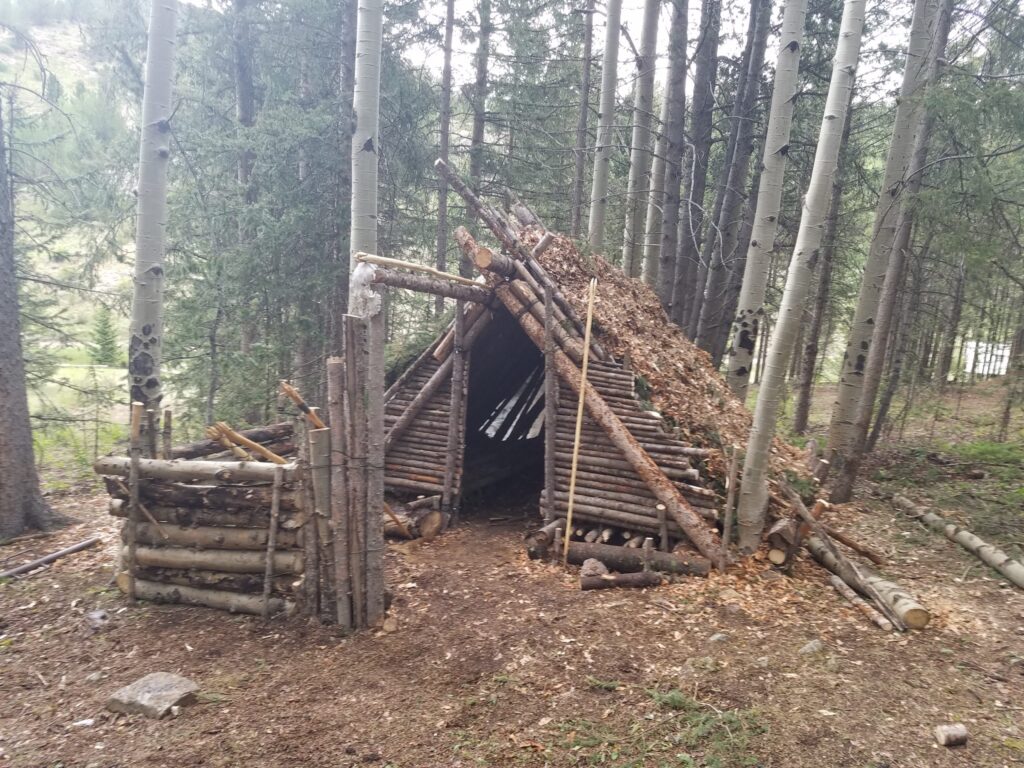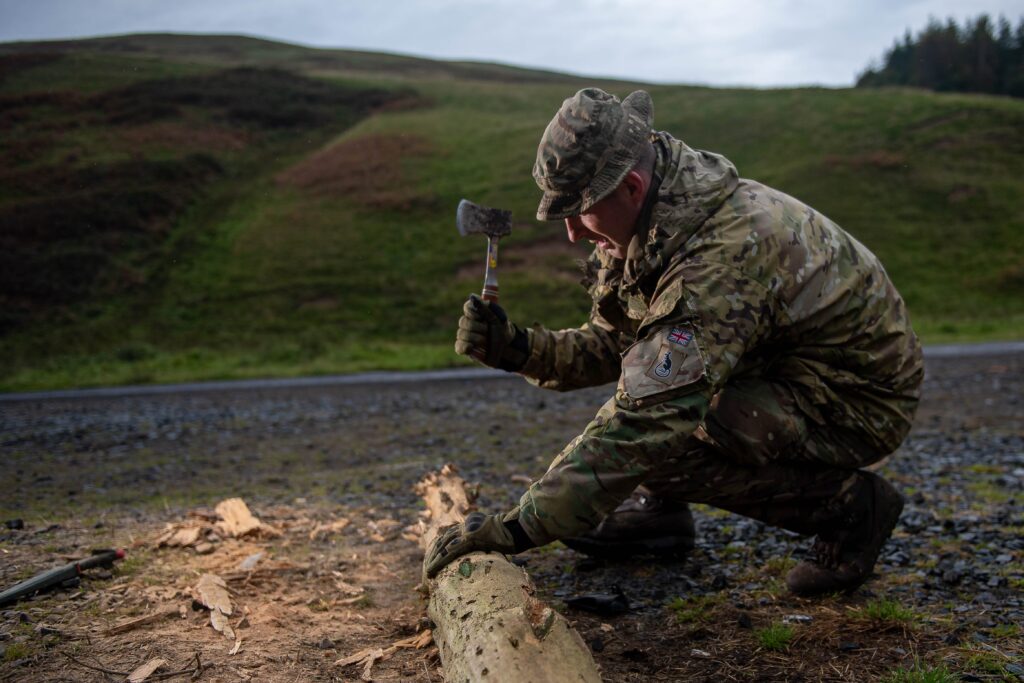One of the most well-liked outdoor pursuits in the US is camping. People adore camping to explore new areas, unwind, or enjoy the great outdoors. As a result, the camping industry continues to expand as people advance from weekend campers to weeklong campers to RVers to annual long-distance campers. Here are some ideas to get you started if you want to go into the camping industry.
According to Statista, the camping market is one of the booming sectors in the United States.
- Revenue in the Camping segment is projected to reach US$21.58bn in 2022.
- Revenue is expected to show an annual growth rate (CAGR 2022-2026) of 3.17%, resulting in a projected market volume of US$24.45bn by 2026.
Why don’t you get into this market and try your luck there? With the right planning, the right product, and the right marketing strategy, you can also become successful in the camping market.
Disclaimer: Before you invest any money or time in planning or opening a new (camping) business, you should always find out about all the risks involved in opening or starting a business. Before starting a new business, you should always discuss everything personally with an expert and know all the risks. This article is NOT financial advice or business advice!
Table of Contents
Camper glamping business

Due to the quick surge in the popularity of glamping, it has become a useful marketing term that various accommodations, including camping, have appropriated.
Most people looking for a glamping experience are looking for some camping experience, including tents and tent-related structures like tipis and yurts.
Factors to consider before starting a camper glamping business
• Location
Almost everywhere can be used to set up a luxurious canvas tent. A plus, but not a need, is being close to or having access to parks, rivers, beaches, resorts, and other outdoor leisure hotspots. For people just looking for a break, turnkey camping trips can frequently be a destination in and of themselves.
• Passion
The glamping industry can be financially and emotionally rewarding. Think about your goals and how glamping might help you attain them. A simple way to earn a little extra cash and meet new people is renting a tent. The end goal of creating a glamping empire is to work for yourself in the outdoor leisure sector, which will demand a larger investment. Whatever your goals, starting with just one or two tents is a terrific way to gauge demand and determine whether you enjoy the business aspect of glamping.
• Price of Entry
Starting a small business may seem difficult, but entering the glamping industry doesn’t take much money or time.
Starting from scratch, you should budget about $2,000 for a high-quality tent and other accessories. While luxuries and additional amenities, like outdoor hot tubs and wood stoves, can increase your cost per unit, they will also enhance the price you can charge every night and help you draw in and keep more customers.
Getting started
• Start now and scale up later.
Start small, even if your ultimate goal is to create a 100-unit glamping utopia. First, you will learn what you need to know in this first tent to advance. Then, you will test your product, market, and environment in your “show tent.”
• Begin with tents
Start with tents, which have a high return on investment. Giving visitors an authentic experience fosters a close bond between them and the places, traditions, and culture. Also, tents do not require building licenses. They can be moved, stored, bought, sold, or rented elsewhere! Use a flexible product to demonstrate your model.
• Conduct research.
Compare styles and sizes to get the ideal tent to realize your ideas. Purchase tents that are effective in your particular environment. You want a product that is reliable, simple to use, and repairable as a business owner. Customers look for features that make it simple to open a window in the summer or start a tent stove in the fall, as well as comfort and style. Get a hold of the item and give it a try. You may always add additional sizes and designs to broaden your selection, but you should keep things uniform to guarantee a reliable shopping experience for repeat clients and recommendations.
• Furnishing
Spend money on comfort first: The Tent, The Bed Frame, and The Lights. Spend less on the decorations but not on the necessities. Interior design is an art. Get creative pieces to bring your décor ideas to life.
• Make a listing
To create your first listing:
- Choose a platform.
- Read through the listings of the tents that have been the most successful and well-liked on the platform, and then style your own after them.
- Include a ton of truly fantastic images. The most crucial part of your presentation will be a single thumbnail image, so make sure it’s great.
Camper van rental business
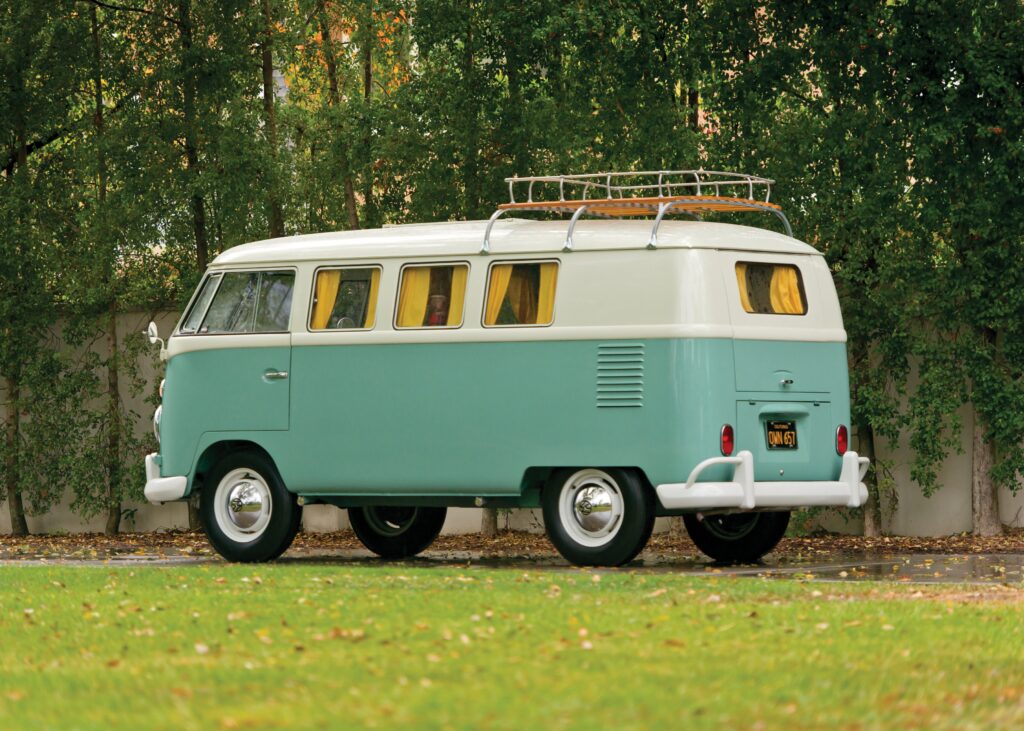
If you’re searching for a business to start in the automotive, starting a camper van rental business is an excellent option.
How to start
• Make a business plan.
For an entrepreneur to be successful, they must have a clear plan. You can use it to map out your company’s specifics and identify some unknowns. A few crucial subjects to consider are: How much does it cost to start a camper rental business?
It would be best if you thought about how many and which styles of recreational vehicles you intend to provide while creating your business plan. The majority of your investment will be used to buy such rentals. Each unit can cost anywhere from $20,000 and over $300,000, depending on its age, type, size, and features. You will also require marketing materials, an easy-to-use website, damage and liability Insurance, and designated storage space when your units are not in use.
• Create a legal entity.
The four main types of business structures are sole proprietorship, partnership, limited liability company (LLC), and corporation.
If your camper rental business is sued, creating a legal business entity, such as an LLC or corporation, shields you from being held personally accountable.
• Sign up for taxes
Before starting a business, you must register for several state and federal taxes.
• Open a company credit card and bank account.
To protect personal assets, it is crucial to use special business banking and credit accounts. Your assets—your home, vehicle, and other valuables—are in danger if your firm is sued if your personal and business accounts are combined.
Opening a business bank account is necessary for several reasons, including:
Separation of your personal assets from your business is required for personal asset protection. Further, it simplifies bookkeeping and tax filing.
• Obtain the relevant licenses and permits
Heavy fines and even the closure of your business may come from failing to obtain the required permissions and licenses.
• Obtain Commercial Insurance
Insurance is also necessary, similar to how a business needs licenses and permits to function legally and safely. The financial stability of your business is safeguarded by business insurance in the case of a covered loss.
• Branding
Your firm’s brand is what it stands for and how the public views your organization. Your company will stand out from rivals with a powerful brand. Design a cool logo that will help attract clients.
If you don’t have the time or talent to design a logo yourself, you can use a service like Fiverr to get an amazing company logo.
Dealership business

Opening an RV dealership can be a rewarding experience for those looking to shift careers. However, building a successful RV business requires time, so you must be patient and have a solid understanding of the sector. Also, choose if you want to focus solely on servicing RVs or selling them or if you want to do both.
Getting started
• Research widely
Find the most affordable strategies to run your RV dealership first. Suppose your dealership is located in a small town with an average family income of just $30,000, for instance. In that case, you might want to consider moving it to a larger metropolis with more prospects to turn a profit. Therefore, conducting thorough research is essential to creating a successful RV business.
Important to note;
You need to consult with an expert in the field as part of your due diligence before starting an RV dealership. But remember that your neighborhood rivals won’t extend you such a courtesy. They’d be foolish to impart their thoughts and industry knowledge on how to succeed in business. However, if they see that you won’t be a direct rival in the same city or region, an RV dealer based in a different location might be delighted to share some helpful advice with you.
• Draft a business plan
Your business plan is ultimately intended to serve as a resource for you, the business owner.
• Networking
Establishing reliable connections with manufacturers as soon as possible as a new dealership is critical. The easiest way is to contact each automaker separately to learn about local dealer prospects.
In some circumstances, the exclusive territory rights that some other dealers may have obtained for the region may restrict your capacity to sell and generate profits; in other circumstances, you may be able to obtain exclusive rights for your dealership.
• Inventory management
A busy RV dealership’s inventory management system is more than just an accounting tool. Sales staff members want online access to current inventory and data on costs and profit margins for each unit.
You cannot afford to lose track of even one RV on your list because every RV unit represents a significant financial investment.
You must put time and effort into finding and hiring salespeople to put your customers in control of your inventory.
When hiring sales employees, previous RV experience can be useful. However, a strong face-to-face marketing track record is the most crucial trait to look for.
• Employee training
Once your team is put together, the following step is to perform extensive business training to ensure everyone is on the same page regarding your dealership’s sales philosophy and practices.
• Join a professional group
When started, you’ll undoubtedly require some expert guidance and counsel. However, you can take advantage of these chances by joining reputable professional organizations.
Additionally, you’ll be able to expand your network and exchange ideas with other dealers and potential customers.
Printing camper van magazines
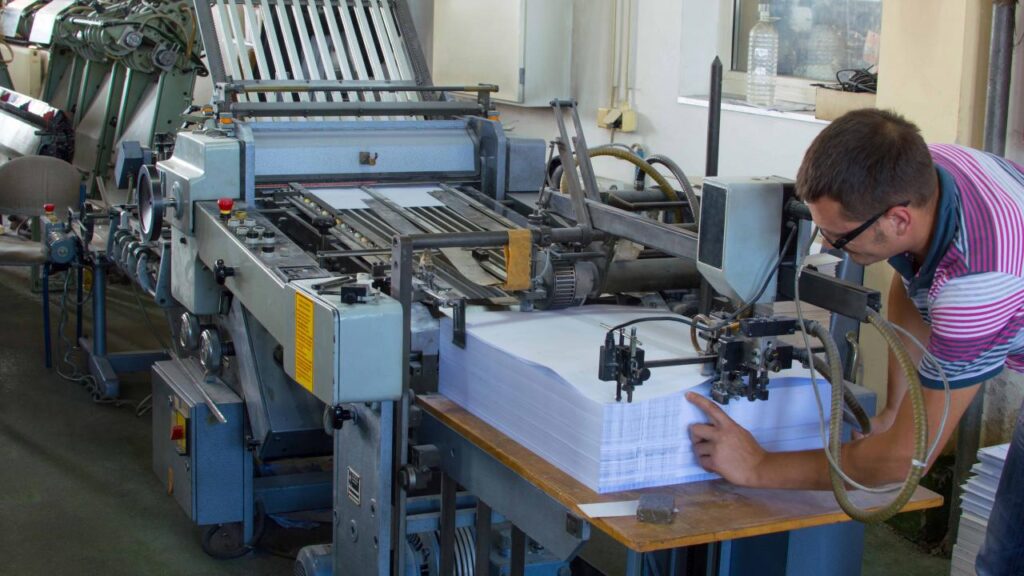
Starting a camper van magazine is another option to cash in on the camper van market without having your van. This publication is devoted to outdoor enthusiasts and campers.
Getting started
• Gather content
Collect articles on touring and traveling, news about shows and events, beautiful camping grounds, reviews, cutting-edge technology, and user feedback. You can also offer tips on having a camper van, including choosing the best towing mirrors, awnings, gas bottles, barbecues, and more, to vary your material.
• Consider blogging
You can build your magazine online, sell it, and get campers to subscribe if you cannot publish it offline in hard copies. Starting a blog where you post relevant information on the sector is another way to go about the business of sharing knowledge about camper vans.
Camper Van Bar Company
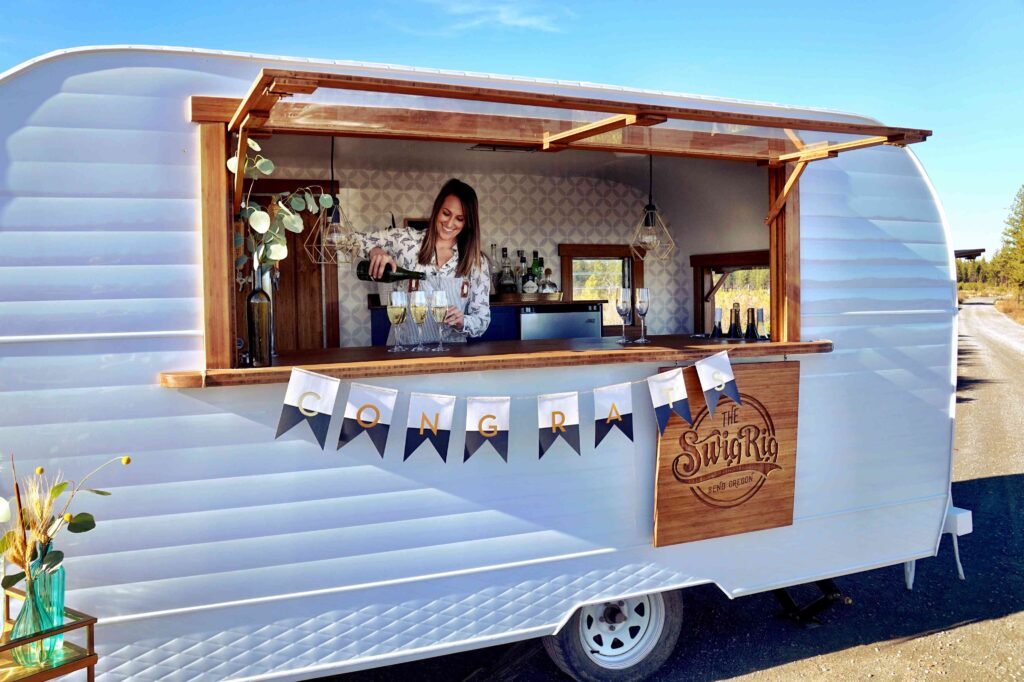
A bar is yet another venture you can launch from a camper van. Starting this business is very similar to opening a traditional bar, but one that you can move from location to location. You may make celebrations for weddings, engagements, proposals, high teas, birthdays, hen’s or bucks parties, or any other cause to celebrate joyfully by bringing your camper van bar along.
What you need
Beverages, shakers, mixers, glasses, and any other items you need to mix drinks should be in your van and stored so that they are secure during the drive. Recognize that in addition to other licenses, a liquor license is required to launch this firm, so start making plans now.
Camper van food truck business
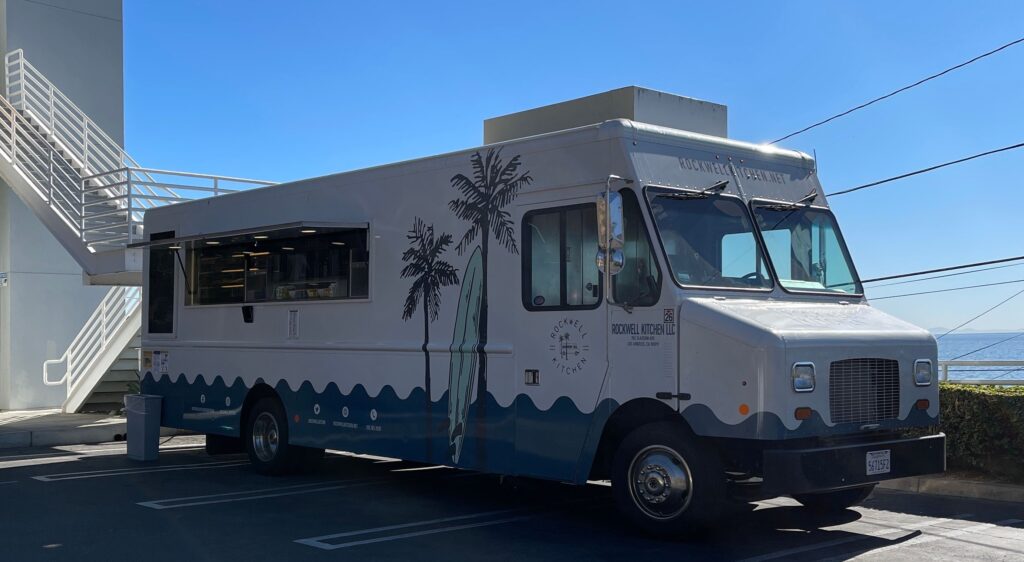
If you want to establish this business and own a camper van, you should hunt for a location where you can turn it into a lovely cafe before launching your enterprise. You can choose to offer supplemental sweets to increase revenue.
Food trucks have gained enormous popularity in America. They are useful because they let you cook tasty food while traveling and can also be stylish. But, even if the traditional food trucks are enormous, there is nothing that prevents you from starting a food business right out of your camper van. Food, especially munchies like pizza and other confectioneries, has long been sold in camper trailers.
If you haven’t already converted your camper, you should start by keeping an eye out for licenses and permits in your area. After that, you can begin baking and selling your products from your van.
Boutique for vintage camper vans
Nothing prevents you from selling clothes from your camper van if you can sell food and coffee from one. As long as you live in a region where antique apparel is valued, starting this business is extremely easy. You might not even need to modify your van to start this business; all you need to do is create as much space as possible to hold the garments, add some racks, and drive your van to the location of your choice. However, keep in mind that if you want to have successful sales, you need be able to market your company.
The bottom line
Due to the holiday disruption caused by volcano ash clouds, airport strikes, bizarre weather, and natural calamities, camping vacations are becoming more and more popular as families cut back on certain pleasures. So naturally, you want to take advantage of this and start your camping business.
Disclaimer: Before you invest any money or time in planning or opening a new (camping) business, you should always find out about all the risks involved in opening or starting a business. Before starting a new business, you should always discuss everything personally with an expert and know all the risks. This article is NOT financial advice or business advice!





